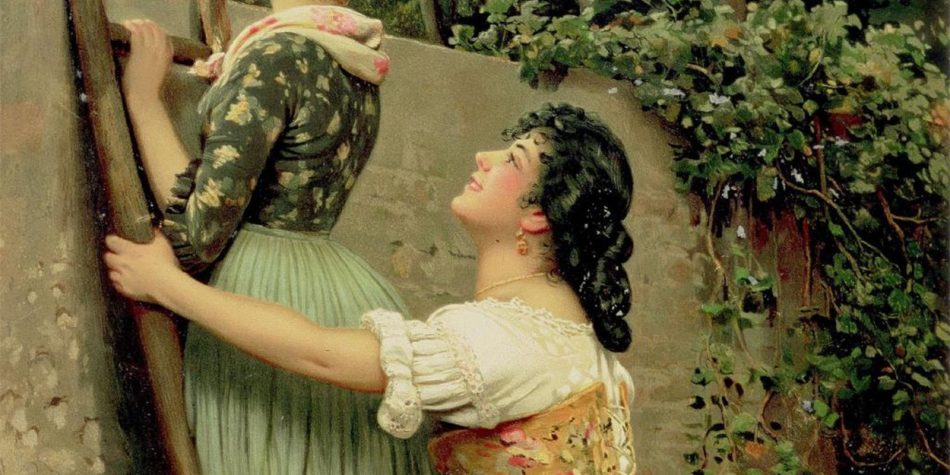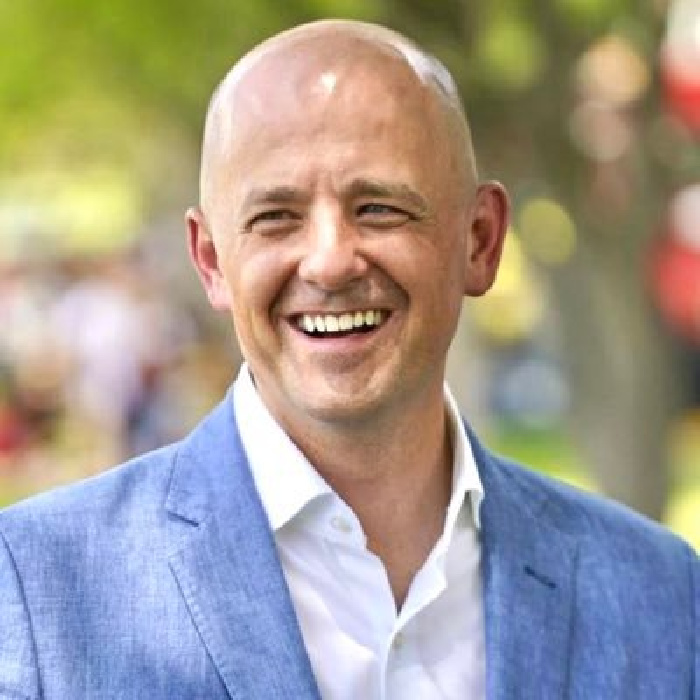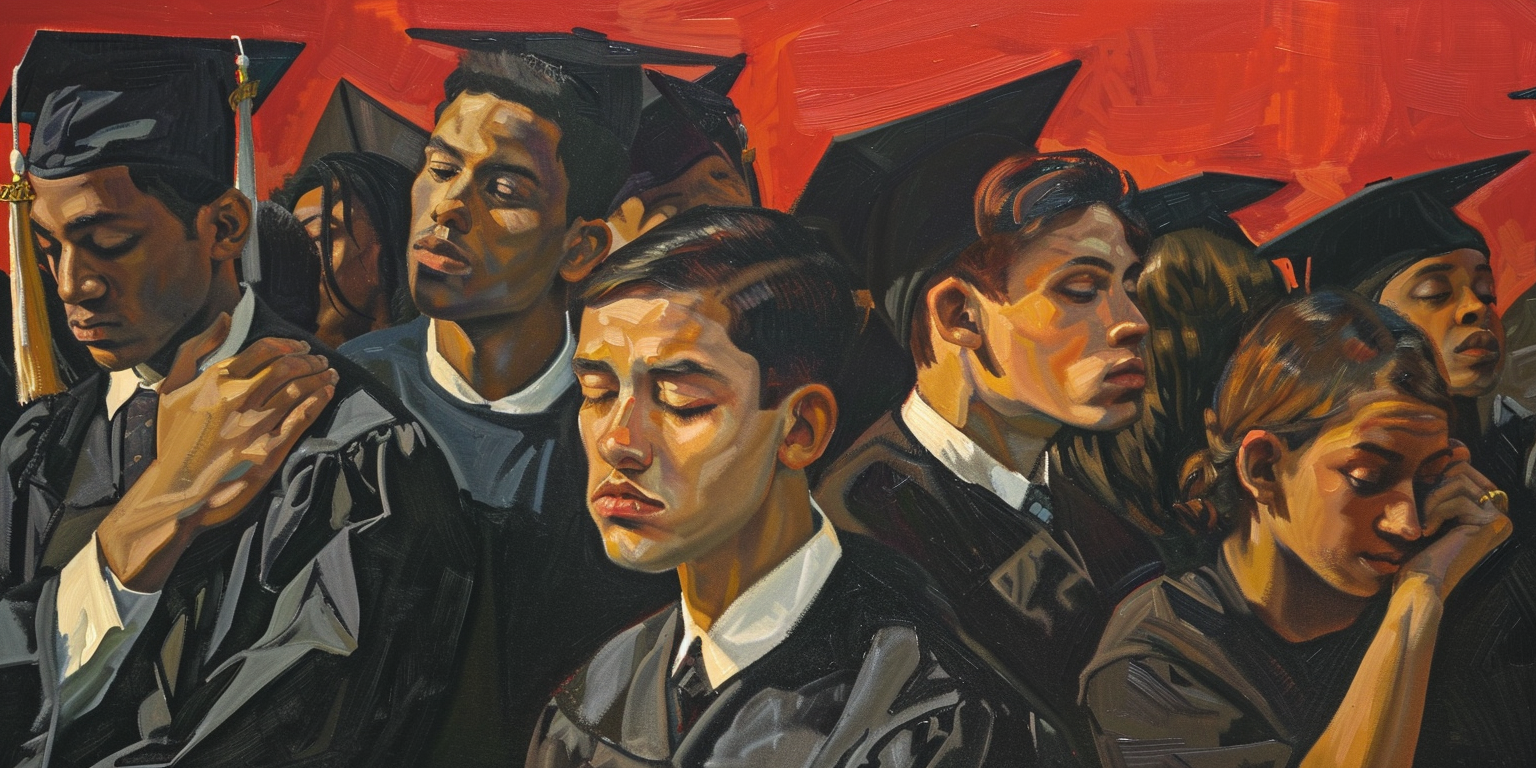We’ve lost our curiosity. At least, I know I have. Not all curiosity of course. I’m still plenty curious about whatever internet rabbit hole I’m going down, link after endless link. (Betelgeuse is how much bigger than our Sun? Fascinating!) No, I’m not talking about that kind of curiosity. Rather, we’ve lost our curiosity about other people, their experiences, their thoughts and ideas; we’ve become dangerously incurious about opinions that differ from our own.
I get it. Life is busy. Too busy. We have families, jobs, a steady stream of emails and issues to deal with. The world is complex. When I finally get my kids in bed for the night, in those few precious moments I have to myself, I rarely want to seek out what the “other side” thinks about Black Lives Matter, or families illegally crossing the border, or Donald Trump. I want to mindlessly scroll through my social media, which through its algorithms rarely presents me with an opinion I have not already formed. Or, I just want to kick off my shoes and seek the comfort of my own opinion in my preferred news outlet. It’s reassuring to hear others confirm what I already think; it doesn’t take a lot of mental work.
Confirmation bias is part of the human condition. As Ben Sasse notes in his recent book, Them: Why We Hate Each Other and How to Heal, “people filter out most information that conflicts with their presuppositions or desired conclusions.” He cites, among other things, a research study at Ohio State University in which people were given the chance to read articles that affirmed or contradicted their political ideas. “The participants spent far more time reading articles that confirmed what they already thought than articles that might have taught them anything new.” In other words, Sasse says, “academic research is confirming what most of us see every day: people work hard to confirm their biases, not to challenge them.”
The internet, along with social media and the “infotainment” industry, has made confirming our biases easier than ever. Sasse explains that “[f]or the average news website…the bottom-line demand is simple: to get more readers to interact with articles, because advertisers will pay top dollar for an engaged readership.” It turns out that, on that internet, outrage and indignation are lucrative fuel. “No one wants nuance. We want white hats and black hats.” It’s simpler that way. “[S]pot something stupid an obscure liberal/conservative said; use it to malign all liberals/conservatives; watch your profile rise as you become a hero to people on your side and a villain to people on the opposite side; rinse and repeat.” “Clicks are cash,” and in our digital age, “provocative social media is the only profitable social media.”
The magic of the curious conversation should not be underestimated.
Social media and the new polarized news industry are speeding our descent into political tribalism. As I discussed in my last article, tribalism creates an us-versus-them mentality. When I revert to tribe, I am looking for “my people”—a place where I can find comfort and safety with others whom I view as the same. I quoted David Brooks, saying that, while tribalism does bind people together, “it is actually the dark twin of community. Community is connection based on mutual affection. Tribalism . . . is connection based on mutual hatred. Community is based on common humanity; tribalism on common foe.” The internet has made it easier than ever to find such tribes, unconnected to anyone with whom I have an actual in-person relationship, or to any geographical community in which I am located. We are thus less motivated and less likely than ever to seek to understand those who differ from us in the physical spaces around us. We are becoming less curious and more lonely.
The creation of community in our pluralistic society requires that we work with and seek to understand those who are different from us. But how do we even start to bridge this divide between our tendency to isolate ourselves from those who think differently—our comfortable digital tribes—and the need to connect with diverse people in our communities? For me, I’m sure it requires getting off my phone, scrolling through social media less, and interacting with real people around me more. Our phones are making us literally and figuratively myopic.
The benefits of limiting our use of technology aside (Sasse’s book has plenty to say on this), I want to focus here on another approach: improving our curiosity. Jane Wise, the associate director of the BYU International Center for Law and Religion Studies and a former mentor of mine recently wrote, “Curiosity is the beginning of humanity. …Regarding people as having lives of equal worth means recognizing that we all have a common core of humanity. To see that humanity, you must… walk in people’s shoes with a willingness to ask them what it’s like in those shoes. It requires curiosity about the world beyond our experience. We have to care about what it’s like in their shoes.”
A close companion to this type of curiosity is a sort of selflessness or rather, self-forgetfulness. Let me explain. I have been mediating and training mediators for more than a decade now. One of the most challenging things I seek to break my students of in order for them to be effective mediators is their need to tell others what to do. No, my students aren’t any more officious than anyone else. It turns out that most of us are rather good at giving unsolicited advice, telling others how they ought to think, and giving our opinions about what they need to do to resolve their problems. It is tempting for new mediators to try to insert their own, albeit brilliant, ideas to resolve things for the disputing parties. However, this is not the role of a mediator. A mediator’s role is to help the parties develop their own resolutions. Thus, to be a mediator requires, first, the ability to let go of myself—of my need to tell them what I think they should do—and, second, the development of a deep curiosity about others. What do these people need and want, what motivates them, what are their ideas, how do they want to handle this for themselves?
There is an exercise that I give my students each year—actually at least three times each year—to help them with this principle. I can’t take credit for the basic formulation of this exercise, which was given to me by another excellent mediator and teacher, Michelle Hawes. The assignment is simple. I require my students to have a curious conversation.
The curious conversation has very specific parameters. I ask my students to reach out to someone they know personally – someone who is likely to have a different perspective on a particular topic – and request their willingness to have a conversation, preferably, face-to-face (with safe social distancing in the event of a pandemic) and without the interruption of cell phones or the like. The students are then instructed to do only two things: ask questions and listen. That’s it.
They aren’t to defend themselves, debate the other person, proselytize, convert, argue with them or point out ways they might be wrong (even if they hear things with which they deeply disagree). They are to simply ask questions and listen, viewing this as a special opportunity to learn. I give them some sample questions but invite them to come up with their own: big, open, curious questions. One of the mantras of my course that tends to help them stay curious and keep listening is this: understanding does not equal agreement.
My students are required to have at least one conversation like this around politics and one around religion. For some, this can be daunting. But should it be? In a recent article about respecting religious freedom, Elder Patrick Kearon, a General Authority Seventy of The Church of Jesus Christ of Latter-day Saints, said “The main thing is to engage, dialogue, bridge, and interact with people of all sorts. Unless we participate, we lose our ability to both influence the world and learn from it.” He continues, “Contributing to the good of society is part of our spiritual stewardship. Jesus taught His followers to be ‘the light of the world’ and ‘the salt of the earth.’. . . Salt was an ancient symbol of friendship and generosity. And like salt, we have a duty to savor person-to-person connections and nurture amity between adversaries. We must not cloister ourselves with others who think like us and congregations that believe like us. Jesus demonstrated how to lift society, moving deliberately to the despised, the diseased, and the misunderstood, listening to and healing them.”
Elder Kearon also says that the “important work in religious freedom is found in walking a mile with your brother and sister, listening to a stranger talk about their religious experience, and employing the gentle efforts of dialogue and persuasion.” Note here, that my assignment to my students is not really about civil dialogue or persuasion. It is a necessary precursor to any of that. No one wants to hear what I’m thinking or is open to persuasion or influence until they feel that they have been listened to, respected, and understood.
There’s a quote that I often give my students about the work of listening. It says: “Our first reaction to most of the statements we hear from other people is an immediate evaluation or judgment, rather than an understanding of it. When someone expresses some feeling or attitude, or belief, our tendency is, almost immediately, to say, ‘That’s right’ or ‘That’s stupid’ or ‘That’s not nice.’ Rarely do we permit ourselves to understand precisely what the meaning of a [particular] statement is to [someone else]. I believe this is because understanding is risky. If I let myself really understand another person, that understanding might change me. And we all fear change.”
I have been reflecting on this a lot in the present moment. With demonstrations and riots across the country over police brutality and other inequities, I have felt particularly as a white American that I need to be asking and listening first for how I might need to change before I attempt to say anything, if indeed, I have anything worthwhile to say at all.
Can our deepening divisions be repaired with such simple conversations? I’m not sure, but the magic of the curious conversation should not be underestimated. Clarissa Pinkola Estés has said: “Ours is not the task of fixing the entire world all at once, but of stretching out to mend the part of the world that is within our reach. Any small, calm thing that one soul can do to help another soul, to assist some portion of this poor suffering world, will help immensely. It is not given to us to know which acts or by whom will cause the critical mass to tip toward an enduring good. What is needed for dramatic change is an accumulation of acts: adding, adding to, adding more, continuing.”
The outcomes of this assignment for me and my students over the years have shown this type of accumulation of good. I have seen time and again how each conversation, when done with curiosity and selflessness, results in some degree of deepening of the relationship and increased respect and understanding. I felt this personally when I challenged myself to participate with my students this year. I swallowed my discomfort and self-doubt and opened a conversation about religion with a close family member who recently chose to leave the church in which we were both raised. We are still close, but I felt a barrier had arisen between us; something I felt we just couldn’t talk about. Still, I asked, and I heard things that were difficult for me to hear, but her experience was hers, and I listened. Despite our differences, I found at the end of the conversation that we were more connected than ever. The barrier, though it hadn’t vanished, had been diminished. We did not agree on everything, but I understood her better.
And, what’s more, now I feel that we could discuss this again. I always tell my students to let their conversation partner know that this doesn’t have to be the last time they discuss the issue. Hopefully, now the topic is more approachable. The conversation doesn’t have to be over. We’ve now opened a conversation that can be revisited – perhaps one that can, with curiosity, compassion, and openness, lead us both to more enduring truths.
One curious conversation at a time.











